Honoring the women working to end polio
Mar. 8, 2018
In every corner of the world, women are leading the charge to make polio history. They are politicians, advocates, fundraisers, and executives. They are also on-the-ground immunization volunteers and health workers on a door-to-door quest to ensure children are immunized wherever polio remains a threat. In honor of International Women's Day 2018, we highlight the work of a just a few of the many women leading the charge.
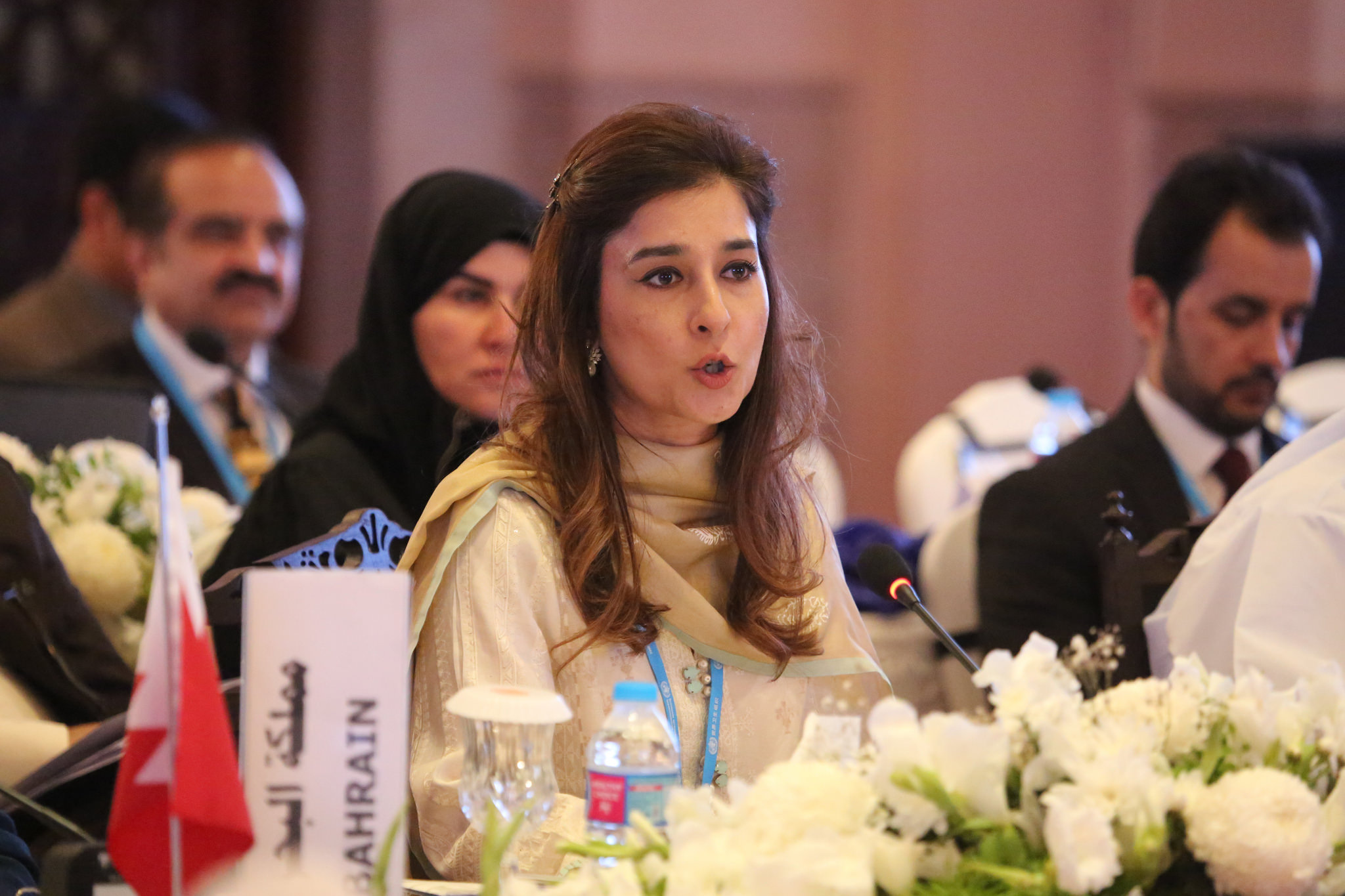 Senator Ayesha Raza Farooq
Senator Ayesha Raza Farooq
When Pakistan’s prime minister appointed Farooq, a senator in Pakistan’s upper house of parliament, as the focal person for polio eradication in 2013, the country was facing challenging obstacles in its efforts to stamp out the disease there. Farooq then championed new strategies to reach children who routinely miss vaccinations, helping Pakistan realize a 98 percent reduction since 2014. Speaking of our global partnerships to get to zero new cases of polio to Rotary magazine, Farooq says: “We as partners are now deeply entwined as we push towards zero. We will succeed or fail together but failure is not an option.”
“We as partners are now deeply entwined as we push towards zero. We will succeed or fail together but failure is not an option.”
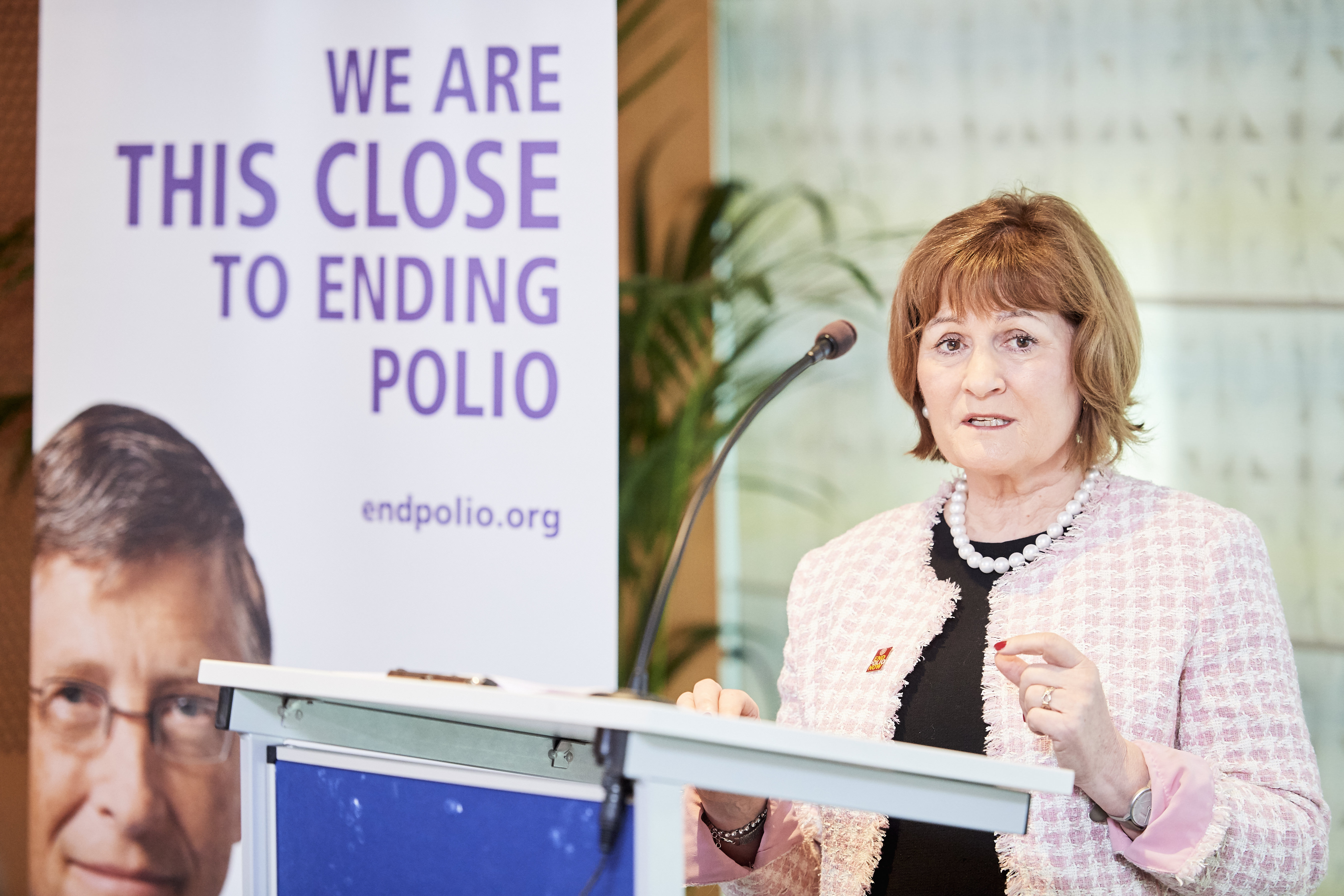 Judith Diment
Judith Diment
Diment, of the Rotary Club of Maidenhead Thames, England, leads Rotary’s UK advocacy efforts, and is a passionate fundraiser and International PolioPlus Committee member. In 2017, she spearheaded Rotary’s efforts to create champions for polio eradication among UK political leaders, resulting in the country committing an additional £100 million to the global initiative last August. “On International Women’s’ Day, I salute the frontline women health workers in Pakistan, Afghanistan, and Nigeria for their dedication and commitment to ensure that all children under five are vaccinated, often risking their lives on a daily basis.”
“On International Women’s’ Day, I salute the frontline women health workers in Pakistan, Afghanistan, and Nigeria for their dedication and commitment to ensure that all children under five are vaccinated, often risking their lives on a daily basis.”
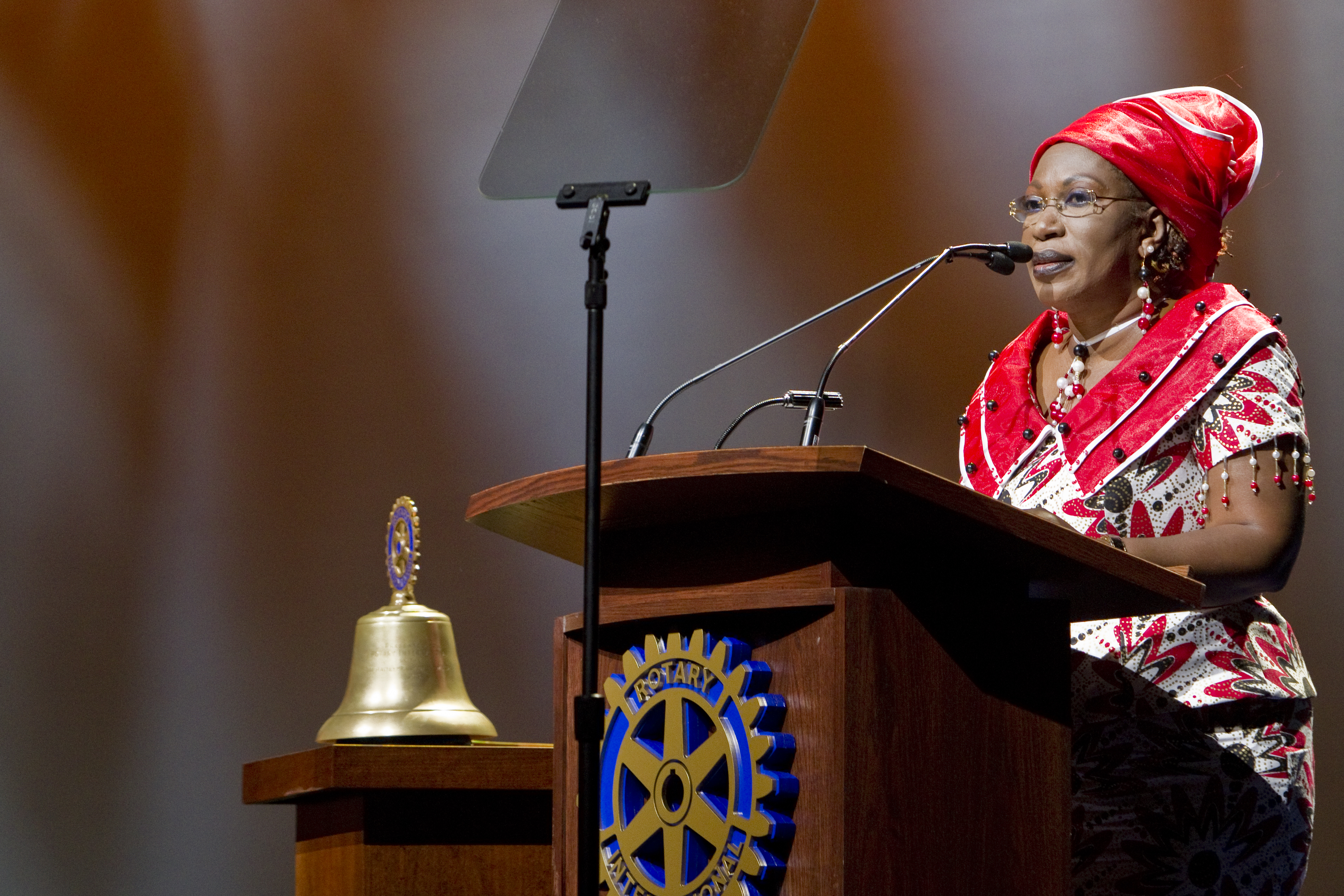 Marie-Irène Richmond-Ahoua
Marie-Irène Richmond-Ahoua
Richmond-Ahoua joined the Rotary Club of Abidjan-Biétry, Côte d’Ivoire, in 1991, making her one of the first female Rotarians in Africa. When a general cancelled a national immunization day during a 1999 coup in her country, Richmond-Ahoua appealed directly to the general’s family, pleading that innocent children had nothing to do with the war. Shortly afterward, the general granted her request and presided over the opening of the rescheduled immunization day. Richmond-Ahoua coordinates national polio immunizations and serves on the Africa Regional PolioPlus Committee. She also spoke at this year’s World Bank International Women’s Day event.
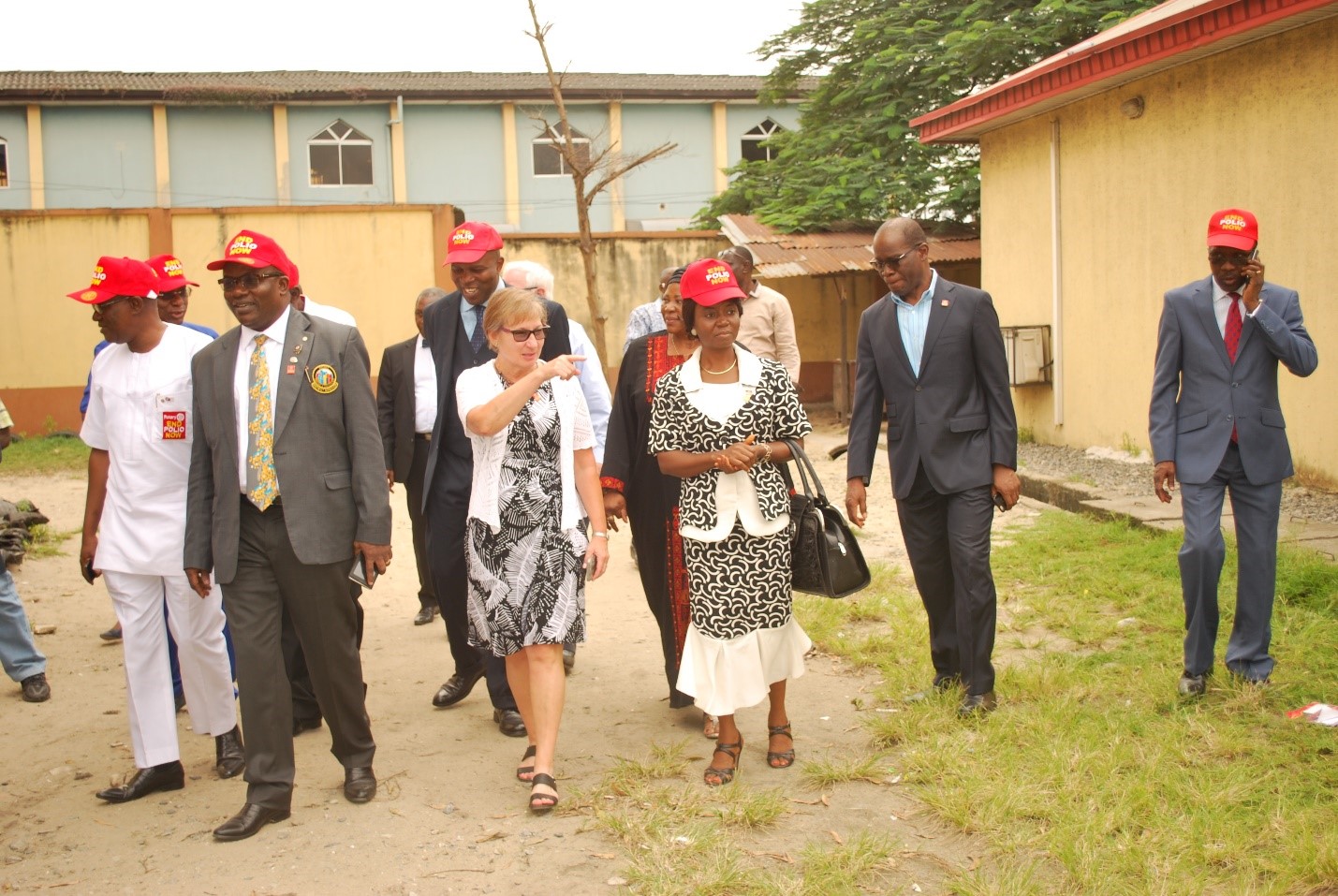 Carol Pandak
Carol Pandak
Pandak has been the director of Rotary International’s PolioPlus program since 2000, a period in which polio endemic countries shrank from 20 to three, and polio cases have dropped to the single digits. Leading day-to-day operations of the work on our top goal, Pandak oversees PolioPlus administration, advocacy, grants, finances, and volunteer engagement working closely with Rotarians worldwide and our partners. She also helps to raise funds for the program. “Our progress has been nothing short of Herculean,” says Pandak, a member of the Rotary Club of Evanston Lighthouse. “I am proud of how far we’ve come and I’m confident we’ll get the job done.”
“I am proud of how far we’ve come and I’m confident we’ll get the job done.”
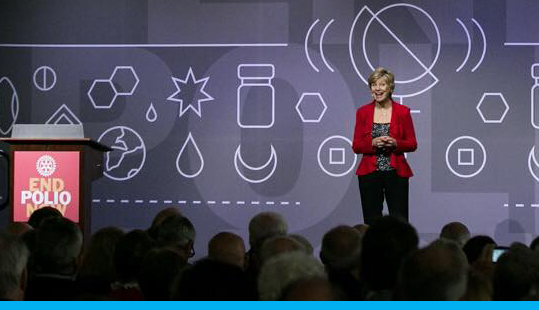 Sue Desmond-Hellmann
Sue Desmond-Hellmann
Under her leadership, the Bill & Melinda Gates Foundation is committed to polio eradication as one of its top priorities and has been an important partner to Rotary. Desmond-Hellmann, a physician, scientist and philanthropist, arrived at the foundation in 2014 with more than 30 years’ experience in the eradication of disease, poverty and inequity. Read her 2016 blog post on why she’s confident we can end polio and learn more about her life’s work.
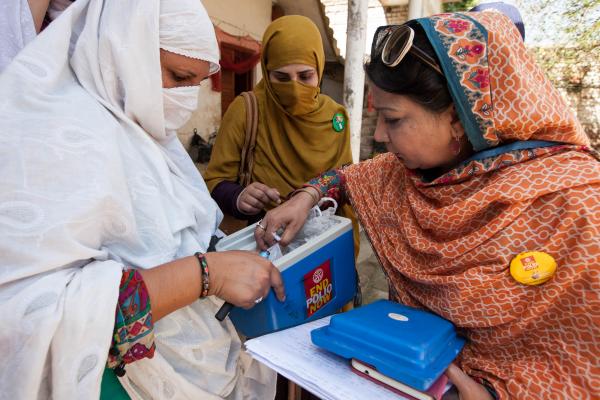 Tayyaba Gul
Tayyaba Gul
A member of the Rotary Club of Islamabad (Metropolitan), Pakistan, Gul runs a Rotary-funded health center in Nowshera, working with teams of female vaccinators help reach neighborhoods of ethnic Afghan refugees displaced by conflict in tribal border regions. Gul’s teams use cellphones for daily data reporting on immunization progress, which helps health organizations analyze data and report back in real time. “I just contribute my part as a Rotarian. I’m happy to work in remote areas, especially with women, motivating them to play their role in society,” Gul says. Read more about Gul’s work in Pakistan.
“I just contribute my part as a Rotarian. I’m happy to work in remote areas, especially with women, motivating them to play their role in society.”
